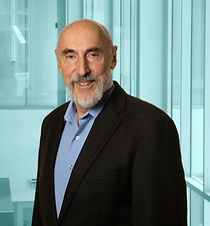
About Ibex Biosciences
Our Mission & Vision
Ibex Biosciences is passionately committed to advancing breakthrough therapies and diagnostics that address a wide range of serious medical conditions.
Our core mission is to develop treatments that not only improve outcomes but ultimately replace the current standard of care for many of today’s most pressing health challenges.
Our long-term vision is grounded in strategic investment across three pillars:
-
Transformative Technologies,
-
Exceptional Scientific Talent, and
-
Untapped Therapeutic Targets.

Strategic Focus
To proactively identify and assess novel molecules and innovative methods of delivery with the goal of developing more potent therapeutics.
To actively seek and evaluate pioneering scientists and their early-stage discoveries, providing them with opportunities that can further their product development objectives.
To assess our non-therapeutic discoveries for their potential in the commercial diagnostic and disease monitoring sectors, thereby expanding our impact beyond treatment alone.
Our Management

Vidal F. de la Cruz, Ph.D., Chief Scientific Officer, CSO and Cofounder
Vidal de la Cruz, Ph.D., a co-founder of Ibex Biosciences established in 2015. For over 20 years, he has led preclinical discovery research and product development, technology and asset scouting and assessment, management, and business development and licensing operations with start-up, mid-size and large international biotechnology and pharmaceutical companies. Dr. de la Cruz is the inventor of Peptide Phage Display Technology, a key technology contributing to the 2018 Nobel Prize in Chemistry.
Prior to joining Ibex, he founded Fomento Pharma, LLC, in 2012, a pharmaceutical and consulting business development practice focused on a range of research and development areas including cancer inflammation, autoimmunity, women’s health, vaccines and gene therapies.
Dr. de la Cruz received a Ph.D. in Cell and Molecular Biology at the University of California, Los Angeles, a B.S. in Biology from Fairleigh Dickinson University, and completed his Postdoctoral Fellowship at the Laboratory of Parasitic Diseases, National Institute of Allergy and Infectious Diseases, (NAID) National Institutes of Health. He is the co-author of over four dozen scientific publications and is the inventor of nine issued patents.

Norman Z. Lai, Ph.D., Chief Technology Officer, CTO
Norman Z. Lai, Ph.D. joined Ibex Biosciences in 2016. For over 20 years, Dr. Lai has held several positions in academia, science and in the biotechnology industry. His work has focused on the development of recombinant viral gene vectors and the establishment of cell-based in vitro and in vivo assays resulting in new research technologies for the treatment of neurological metabolic disorders, autoimmune diseases, and early human cancer detection.
His early research includes gene therapy delivery effectiveness, in collaboration with Dr. Roscoe O. Brady, an international leader in the field of metabolic and enzyme replacement therapy at the National Institute of Nonlogical Disorders and Strokes (NINDS), National Institutes of Health (NIH), and as Executive Director of Research and Development at U.S. Precision System Science Inc., where he worked on new diagnostic platforms for detecting single nucleotide polymorphisms (SNP) mutations sites of genetic metabolic disorders.
Dr. Lai received a Ph.D. in Pharmaceutical Bioscience and a Master of Science in Pharmacy from the University of Uppsala Sweden. He was a Postdoctoral Research Fellow at the Department of Medical and Molecular Genetics at Indiana University School of Medicine and an outstanding Research Fellow at Developmental and Metabolic Neurology Branch, NINDS, NIH. He also serves on the Board of Directors of US MediGene Inc, and serves as Vice Chairman of the Scientific Advisory Board Rafagen Inc. He is the co-author of numerous scientific publications and is the co-inventor of many patents and patent applications.

A. Murat Croci, Co-Chief Executive Officer, COO and Cofounder
Murat Croci, a co-founder of Ibex Biosciences established in 2015. Mr. Croci brings with him a wealth of experience in the early-stage biotech sector, where he has held managerial roles for two decades. His ingenuity in biotech and software fields is demonstrated through his contribution as an inventor on five patents.
Before he embarked on the journey of establishing Ibex, Mr. Croci was deeply involved in the financial aspects of Seneca Biotech, an early-stage biotech company committed to improving cancer diagnostics, where he held a pivotal role as a financial controller. Prior to his involvement in biotech, Mr. Croci worked as a tax and business consultant.
Graduating from the University of Maryland Global Campus in 2000, Mr. Croci acquired his Bachelor of Science degree after a period of distinguished military service in the United States Army from 1990-96. This distinguished tenure not only garnered him accolades as a decorated veteran but also impacted his approach to management, instilling a strong focus on mission-driven leadership.

Michael J. Karlin, Co-Chief Executive Officer, CBO and Cofounder
Michael J. Karlin co-founded Ibex Biosciences in 2015. Mr. Karlin has over two decades professional experience in legal, finance, and business in the biotechnology and technology sectors. He is also a co-founder of other technology startups focused and is an inventor of several patents in biotechnology, artificial intelligence, and software.
Early in his career, he practiced law and tax consulting at several global New York based firms, including Andersen, Pillsbury Winthrop Shaw Pittman, and Morrison Cohen. Mr. Karlin received a JD from the University of Pennsylvania Carey Law School, an MBA in Finance and a Bachelor's degree in Accounting from the George Washington University School of Business. Mr. Karlin sits on the National Cancer Institute SBIR CEO Roundtable.

Saule Dairabayeva, Operations Manager
Saule Dairabayeva joined Ibex Biosciences in 2018. Saule Dairabayeva is an international affairs professional with over a decade of experience working in the international community and in the private sector. Ms. Dairabayeva has worked for several U.S. and international organizations, think tanks, and universities, including Massachusetts Institute of Technology, W. Wilson International Center for Scholars, U.S. Embassy Astana, and the Defense Threat Reduction Agency mission, where she was responsible for executing cross-functional projects and engaging with multiple stakeholders including foreign governments, media, and businesses.
Saule is a recipient of multiple awards and fellowships, including recognition for an outstanding Support to the Nuclear, Chemical, Biological team, and the Cooperative Threat Reduction mission of the U.S. Defense Threat Reduction Agency.
Ms. Dairabayeva received a Master of Arts degree in International Affairs from the George Washington University.
Our Scientific Board

Sanjiv Chopra, M.D.
Sanjiv Chopra, M.D., is professor of medicine and former faculty dean for Continuing Medical Education at Harvard Medical School. He is a Marshal Wolf Distinguished Clinician Educator at the Brigham and Women’s Hospital. For 12 years he led the most robust academic Continuing Medical Education enterprise in the world, reaching out to 80,000 clinicians in 195 countries each year. Dr. Chopra is also editor-in-chief of the hepatology section of UpToDate, an online resource used by more than 1.5 million physicians worldwide for clinical decision-making at point of care.
Dr. Chopra was designated a Master of the American College of Physicians in 2009, and has earned a number of awards, including the American Gastroenterological Association’s Distinguished Educator Award. In 2012, he was awarded the Ellis Island Medal of Honor for “Exemplifying outstanding qualities in both one’s personal and professional lives while continuing to preserve the richness of one’s particular heritage.”
Dr. Chopra is best selling author and a sought after motivational speaker throughout the United States and abroad.

Christopher Plowe, M.D.
Christopher Plowe, M.D., is an acclaimed scientist and malariologist recognized internationally for his groundbreaking work on the molecular epidemiology of drug-resistant and "vaccine-resistant" malaria.
Dr. Plowe's extensive career involves collaborating with research partners in Africa to establish clinical trial sites and lead investigations into malaria vaccines and treatments. His focus later shifted to Southeast Asia, where he organized research initiatives aimed at malaria elimination and employed molecular and genomics techniques to monitor drug resistance and map the "silent reservoir" of malaria parasites. In addition, he contributed to enhancing local research and surveillance capabilities while advocating for malaria elimination through global health diplomacy.
Born and raised in South Dakota, Chris Plowe earned a BA in Philosophy at Cornell University before receiving an MD degree at Cornell University Medical College and an MPH at the Columbia University School of Public Health. He completed an internal medicine residency at St. Luke's Hospital and fellowships in malaria research at the National Institute of Allergy and Infectious Diseases and in infectious diseases at Johns Hopkins School of Medicine before joining the faculty of the Center for Vaccine Development at the University of Maryland School of Medicine, where he was the Frank M. Calia, MD Professor of Medicine and founding director of the Institute for Global Health. He subsequently joined Duke University, where he was a Professor of Medicine, Molecular Genetics and Microbiology, and Global Health, and Director of the Duke Global Health Institute. Now based in Woodstock, New York, he is an Adjunct Professor of Medicine at the University of Maryland School of Medicine and an independent consultant on all matters malaria.

Terry Plasse, M.D.
Terry Plasse, M.D., brings over 30 years of experience in drug and biologic development, with a focus on oncology, collaborating with companies of all sizes. He has successfully managed clinical studies spanning from phase one to four, including numerous first-in-man trials. Notably, Dr. Plasse oversaw North American studies for Taxotere® (docetaxel) and played a pivotal role in phase I studies of Iressa® (gefitinib), which later emerged as a crucial treatment for NSCL with specific EGFR mutations.
As an industry consultant for over 15 years, Dr. Plasse has guided a diverse range of companies, from major corporations to smaller enterprises, such as Rhone-Poulenc Rorer, AstraZeneca, Merck, and Bristol-Myers Squibb, through the complexities of clinical development and regulatory processes.
His extensive expertise also covers medical study management from preclinical to phase IV, along with continuous collaboration with the FDA from the pre-IND stage through product approval.

Nirbhay Kumar, Ph.D.
Nirbhay Kumar, Ph.D., is a distinguished researcher in immunobiology. He earned his Ph.D. in Biochemistry at AIIMS in 1977 and received advanced research training in cell biology, immunology, and vaccinology at the NIH. Dr. Kumar held the position of a professor of Molecular Microbiology and Immunology and served as the deputy director of the Johns Hopkins Malaria Research Institute from 1986 to 2009. Subsequently, he was as a professor and chair of the Department of Tropical Medicine and director of a Vector-Borne Infectious Diseases Research Centre at Tulane University from 2010 to 2018. At present, Dr. Kumar holds the title of professor of Global Health at George Washington University.
Dr. Kumar has been recognized for his contributions and was elected as a fellow of the American Association for the Advancement of Sciences (AAAS) in 2007, the American Academy of Microbiology (AAM) in 2012, and the American Society of Tropical Medicine and Hygiene (ASTMH) in 2015.
His research, primarily funded by the National Institutes of Health, focusing on the immunobiology of malaria transmission has played a critical role in the development and wider acceptance of the concept of malaria transmission blocking vaccine as a key vaccine approach to achieve malaria elimination.

Norman Waters, Ph.D.
Norman C. Waters, Ph.D., Col. (Ret.), a distinguished military professional and scientific researcher in the malaria and infectious diseases. Dr. Waters earned his Ph.D. in Microbiology and Immunology from Drexel University College of Medicine in 1997.
Dr. Waters was a Director of the Military Malaria Research Program. As Director he led the US Army efforts to develop drugs and vaccines against malaria and coordinated closely across DoD, U.S. Government agencies, and NGOs/NPOs to ensure synchronization and advancement of malaria countermeasures. Dr. Waters served as the Chief of Malaria Protein Chemistry at the Walter Reed Army Institute of Research and Chief of Malaria Drug Discovery and Surveillance at the United States Army Medical Research Unit-Kenya. He directed the DoD-Global Emerging Infectious Surveillance and Response System activities to provide drug sensitivity profiles of malaria parasites throughout Kenya. As a Research Liaison Office at the Australian Army Malaria Institute in Brisbane, Australia, he also coordinated research and antimalarial product development efforts between DoD and the Australian Defense Force. Dr. Waters participated in malaria eradication efforts in the South Pacific where he conducted malaria surveillance in remote regions of the Solomon Islands and Vanuatu.
In 2018, he assumed the role of Department Chief of Bacterial and Parasitic Diseases at the Armed Forces Research Institute of Medical Sciences in Bangkok, Thailand. In this capacity, he led medical research, clinical studies, infectious disease surveillance, and global health engagements across Thailand, Cambodia, Nepal, and The Philippines.
After retiring from the US Army in 2022, Dr. Waters now serves as the Senior Director of Clinical Operations at the Sabin Vaccine Institute, where he leads the development of vaccines for various infectious diseases.
